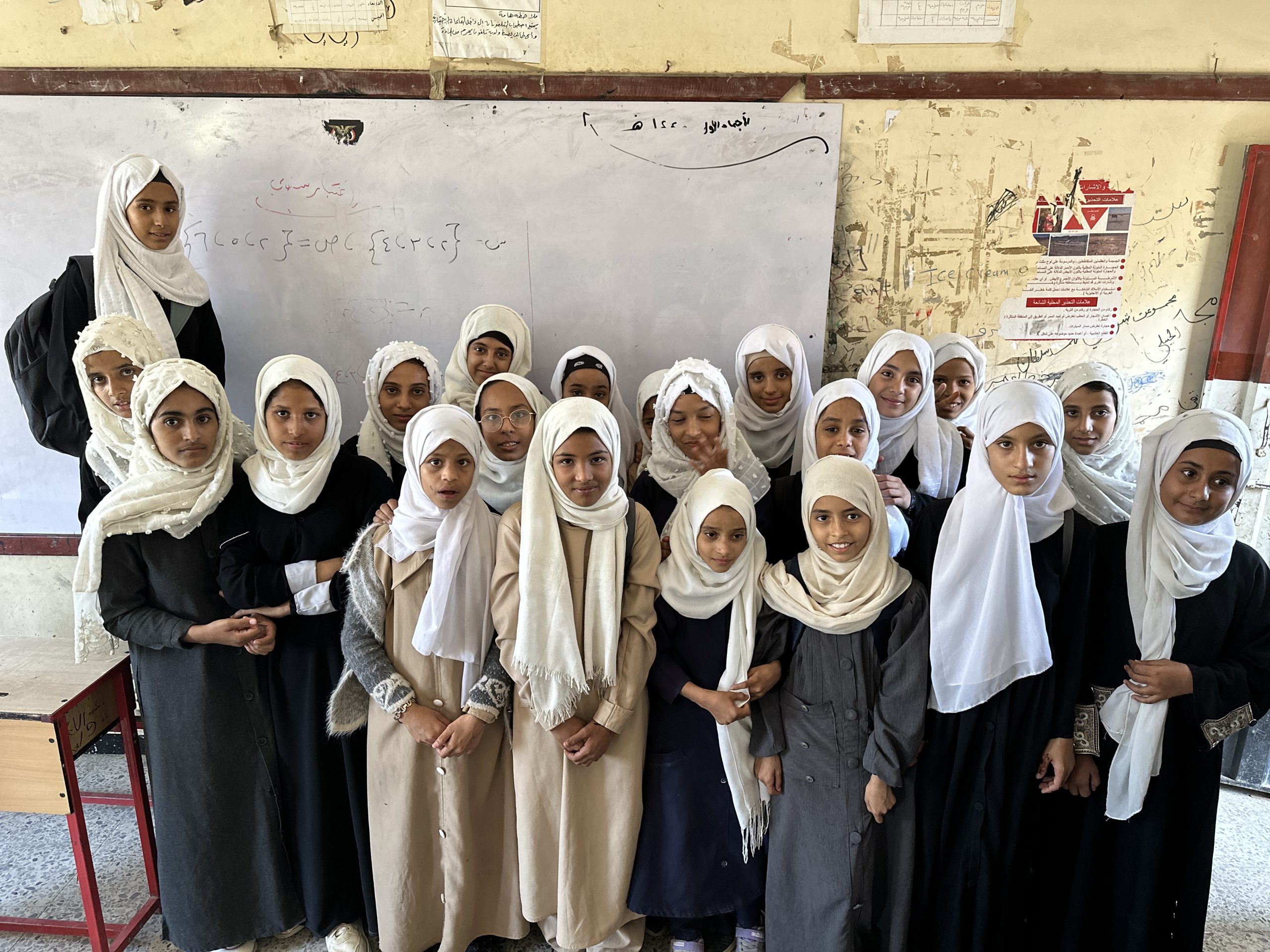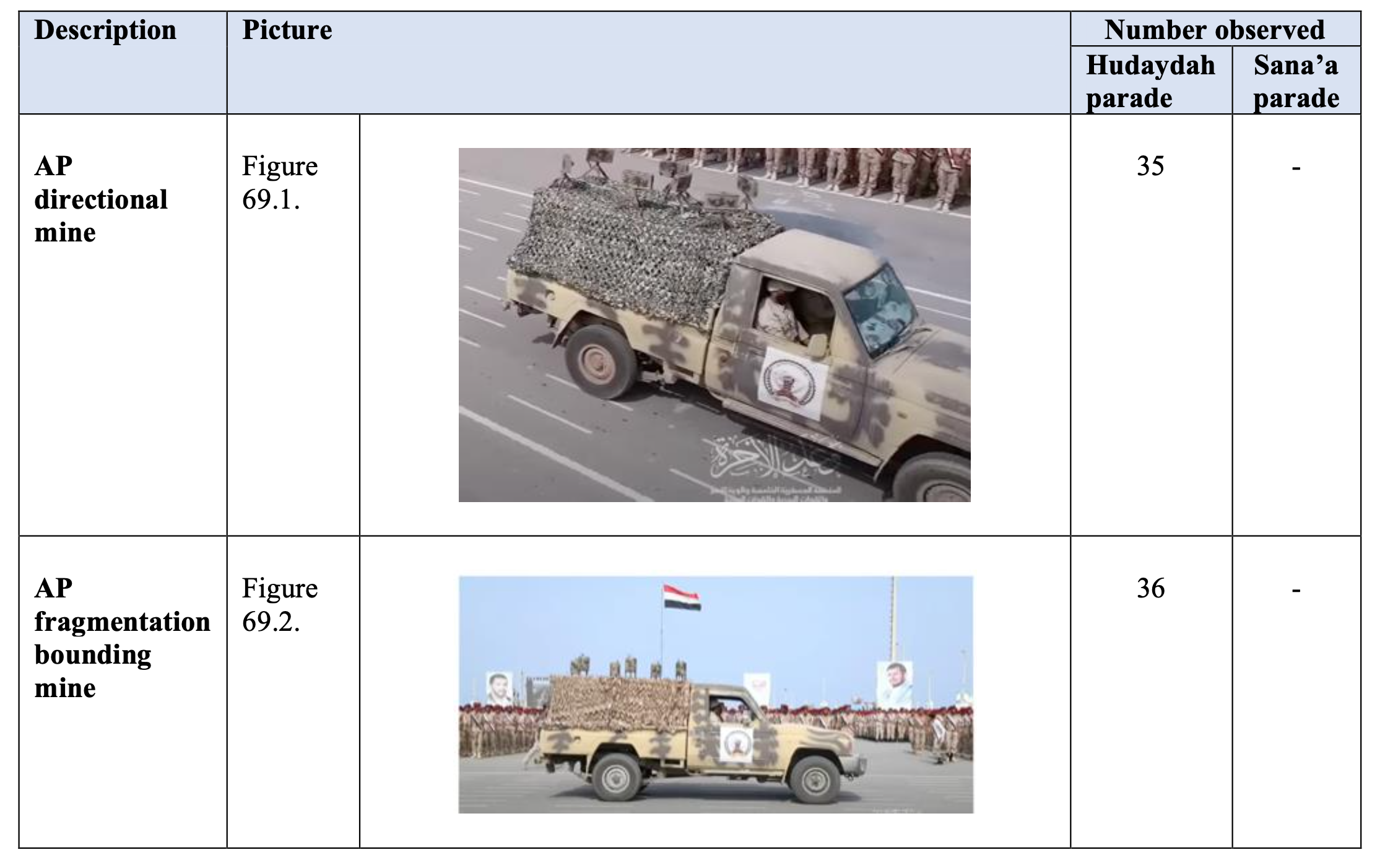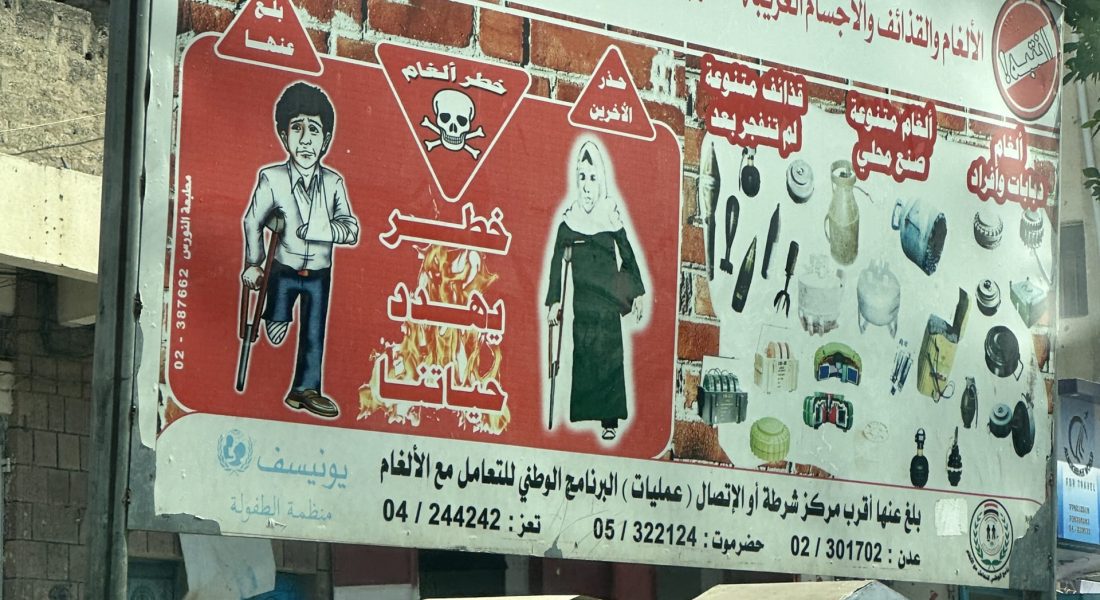The International Group of Experts on Yemen has found that “most [human rights] violations investigated by the Panel were attributed to the Houthis” and called on the Houthis to stop the indiscriminate use of landmines and remove existing landmines from civilian areas under their control.
The United Nations Human Rights Council established the Group of Eminent Experts on Yemen in September 2017. The Panel was set up to investigate violations and abuses committed in Yemen since the beginning of the conflict in September 2014, when Iran-backed Houthi rebels and pro-former president Ali Abdullah Saleh forces seized the then-capital Sanaa.
Landmines targeting civilians
In its latest report, published in November 2023, the UN Panel of Experts, found that: “Civilians, including children, continue to bear the brunt of the ongoing conflict and are exposed to major threats such as the widespread presence of explosive remnants of war, particularly landmines, strikes against civilians and civilian infrastructure, and the unregulated proliferation of weapons.”
Adding: “Most violations investigated by the Panel during the reporting period are attributed to the Houthis.”
The experts also found that “landmines, commonly located in close proximity to civilian buildings such as houses, schools and mosques, improvised explosive devices (IEDs) and explosive remnants of war continue to be major threats for the civilian population, especially children.”
The Panel also received reports on various locations in which mines and IEDs were concealed in rural villages “to target returning populations after the Houthis left those areas”.
“Typically, the Houthis position anti-personnel mines in and around schools, mosques, houses, including under mattresses, wells, and other water sources,” the report stated.

Young girls pose in their classroom at Ibrahim Aqeel School in the city of Taiz Yemen. Their school is surrounded by anti-personnel minefields.
Children are first casualties
Children have been particularly affected by landmine accidents, the report said.
“Civilians in Yemen continue to be exposed to threats related to landmines, improvised explosive devices and unexploded ordnance, which have caused many civilian casualties, particularly children.
According to figures compiled by the experts, July 2023 saw the highest number of recorded child casualties as a result of explosive remnants of war (23, of whom 9 died) since the beginning of the year.117.
The report also found that between 1 December 2022 and 31 August 2023, incidents involving explosive remnants of war, including landmines and unexploded ordnance, resulted in 417 civilian casualties, including 140 deaths and 277 injuries.
“Hudaydah, Jawf, Ma’rib and Ta’izz Governorates were among the most affected. For example, on 25 July an unexploded ordnance in Wadi Abidah, in Ma’rib district, exploded, killing a man, his wife, his mother, and five children. Two more children were injured in the blast,” the report read.
Violations of targeted arms embargo?
In the report, the experts on Yemen also highlighted how “there are reportedly more than 2.5 million improvised explosive devices and anti-tank and anti-personnel landmines that have been planted by the Houthis, mainly on the front lines.”
The Panel, which said it was not able to independently verify these data, however quoted an expert specializing in landmines, who said that a large number of those planted by the Houthis since 2018 were manufactured locally by them.
“Considering an average of 5 kg of explosive chemical material required to manufacture one device planted by the Houthis, the Panel estimates that around 12,500 tons of such explosive chemical material would have been acquired by the Houthis in violation of the targeted arms embargo,” the report said.
“The Panel notes that non-electric detonators with similar characteristics are largely used by the Houthis in the manufacture of improvised explosive devices and landmines of various models.”

Panel of Experts on Yemen report to the United Nations Security Council Annex 69: Landmines displayed by the Houthis during the military parade held in Hudaydah on 1 September 2022, which the Panel is investigating for potential violations of the targeted arms embargo
Panel of Experts recommendations
Project Masam welcomes the Panel of Experts on Yemen’s recommendation that the Security Council demanded a stop to “the indiscriminate use of landmines and remove existing landmines from civilian areas under their control and encourage Member States to enhance their support for humanitarian demining efforts in Yemen, including through the provision of specialists, equipment and adequate funding, with appropriate safeguards to prevent any misuse”.
The Panel announced it was also “investigating for potential violations of the targeted arms embargo” after banned landmines (including anti-personnel directional mines and anti-personnel Fragmentation Bounding mines) were displayed by the Houthis during the military parade held in Hudaydah on 1 September 2022.
The Panel of Experts on Yemen Consider recommended the UN Security Council established “a monitoring unit within the relevant United Nations entity to closely monitor violations of the targeted arms embargo and to reinforce the capacity of the Government of Yemen to counter the illicit flow of arms, ammunition and related material”.
In addition, the panel highlighted the need to safely deal with other remnants of war including unexploded ordnance and other debris.
The Panel of Experts recommended that the UN Security Council called upon the internationally-recognised Government of Yemen and the Coalition “to establish a joint mechanism for collecting debris of weapons, including uncrewed aerial vehicles used by the Houthis or AQAP in their attacks, and the material seized and ensuring proper documentation, forensic analysis and storage while maintaining the chain of custody”.
Finally, the experts recommended that the Security Council Committee considered “encouraging Member States to increase the allocation of humanitarian funding for Yemen”.

